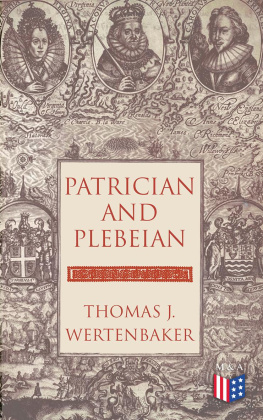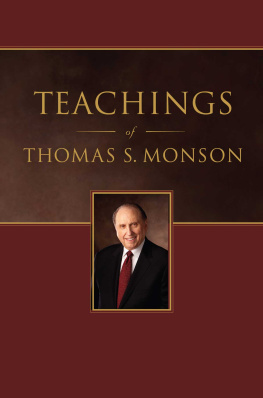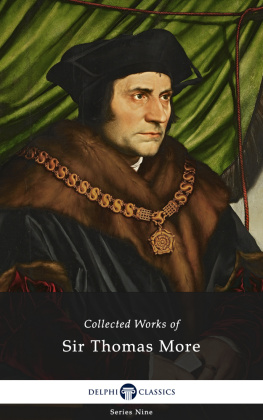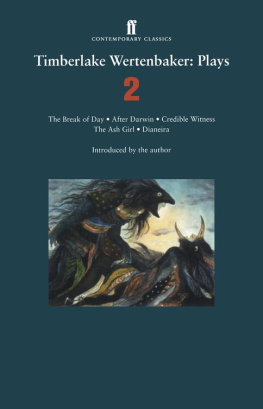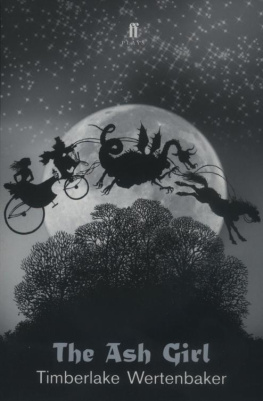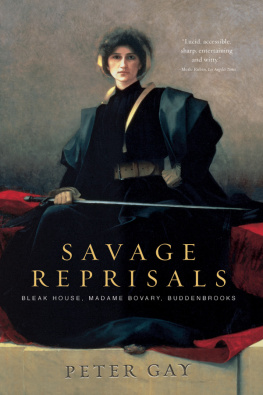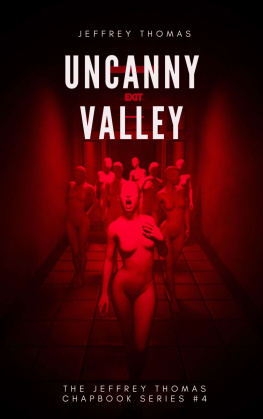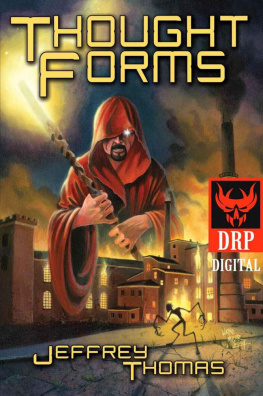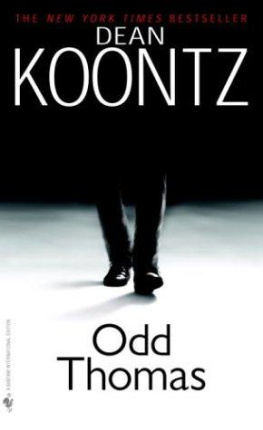PREFACE
Forty-seven years have passed since this volume was first published; in that time a mass of source material has been made available to the historian and numerous books on early Virginia history have been published. But I believe that its main theses have not been shaken. The old belief that the Virginia aristocracy had its origin in a migration of Cavaliers after the defeat of the royalists in the British Civil War has been relegated to the sphere of myths. It is widely recognized that the leading Virginia familiesthe Carters, the Ludwells, the Burwells, the Custises, the Lees, the Washingtonswere shaped chiefly by conditions within the colony and by renewed contact with Great Britain.
That the Virginia aristocracy was not part of the English aristocracy transplanted in the colony is supported by contemporaneous evidence. When Nathaniel Bacon, the rebel, the son of an English squire, expressed surprise when Governor Berkeley appointed him to the Council of State, Sir William replied: "When I had the first knowledge of you I intended you and do now again all the services that are in my power to serve, for gentlemen of your quality come very rarely into the country, and therefore when they do come were used by me with all respect."
Bacon was equally frank. "Consider the nature and quality of the men in power as to their education, extraction, and learning, as to their reputation for honor and honesty, see and consider whether here, as in England, you can perceive men advanced for their noble qualifications. "
Governor Francis Nicholson ridiculed the pretensions of the leading planters to distinguished lineage. "This generation know too well from whence they come," he wrote in a letter to the Lords of Trade, in March 1703, "and the ordinary sort of planters that have land of their own, though not much, look upon themselves to be as good as the best of them, for he knows, at least has heard, from whence these mighty Dons derive their originals and that he or his ancestors were their equals if not superiors."
On the other side of the Potomac Henry Callister was frank in refuting the similar claims of wealthy Marylanders. "Some of the proudest families here vaunt themselves of a pedigree, at the same time they know not their grandfather's name. I never knew a good honest Marylander that was not got by a merchant."
That many prominent families in Virginia also were founded by merchants is attested by the fact that they continued to be traders after they came to the colony. "In every river here are from ten to thirty men who by trade and industry have gotten very competent estates," wrote Colonel Robert Quary in 1763. "These gentlemen take care to supply the poorer sort with provisions, goods, and necessities, and are sure to keep them always in debt, and so dependent on them. Out of this number are chosen her Majesty's Council, the Assembly, the justices, and other officers of the government."
Hartwell, Blair, and Chilton, in their The Present State of Virginia and the College, written in 1697, divide the people into three classesplanters, tradesmen, and merchants. "The merchants live best," they said. But though profits were large, their business was carried on in the face of great difficulties. The tobacco they bought from the small planters had to be carted or rolled to the landings and put on board their sloops and shallops for transfer to the merchant ships; they had to sell imported goods on credit; often there were long delays in loading the ships.
Some of the most influential men in Virginia were importers of servants and slaves. Among them were William Claiborne, Peter Ashton, Isaac Allerton, Giles Brent, Joseph Bridger, Thomas Milner, Henry Hartwell, and Robert Beverley.
The distinguished historian, Lyon Gardiner Tyler, in Tyler's Magazine, Volume I, says that "Virginia owes much to the London firms, because they were continually sending over trusted young agents many of whom settled down and founded Virginia families. The business of the merchants consisted largely in buying and selling tobacco and importing settlers and servants, for each of which if imported at their expense the merchants were entitled to fifty acres of land. Then there was the usual trade in clothing and articles of general use."
Though the Virginian who acquired a degree of wealth was no aristocrat, he longed to be one. His grandfather, or his great-grandfather might have been a younger son of an English squire. He envied the honor, wealth, and power landholding brought that ancestor, just as many Virginians today envy the life of the colonial plantation owner. So when he found himself an extensive landholder, he thought of himself as an English squire. He too would build a fine residence, decorate his walls with family portraits, have a formal garden, accumulate a library, and dress in the latest English fashion.
Virginia in the colonial period was linked to England by government, commerce, religion, reading, education. The mother country sent over governors who set the fashion in courtly living. It was the planter's agent in London or Bristol who usually selected his furniture, his silverware, his clothing, and often even his books. When on Sunday he went to church he listened to a minister who had been born and educated in England. The shelves of his library were lined with books from England, if he could afford it he sent his son to Oxford or Cambridge.
When a Virginia planter visited England in the eighteenth century, he was deeply impressed by the beauty and dignity of the great country mansions there. As he viewed Longleat, or Blenheim, or Eaton Hall, he must have resolved that he too would build a stately house on the banks of the James. If he had never been to England, he might take down an English book of architectureBatty Langley's Treasury of Designs, or Abraham Swan's The British Architect, or James Gibb's A Book of Architecturepick out a suitable design and model his house on it. He might even send to England for an architect, as did George Mason, when he engaged William Buckland to design beautiful Gunston Hall. Westover, Carter's Grove, Mount Airy, Kenmore, Brandon, all bear the stamp of the English Georgian.
If there was any doubt that the Virginia gentlemen followed the latest English fashions in dress, a glimpse at their portraits would dispel it. William Byrd II, as he appears in the painting by Sir Godfrey Kneller would have made a fine figure in any assembly in England; no English nobleman was better dressed than Robert Carter, of Nomini Hall, as shown in the Reynolds portrait.
When a Virginian went to England he not only took the opportunity to replenish his own wardrobe, but was charged by his relatives and friends to make purchases for them. In a letter to Mrs. Thomas Jones, in 1727, Mrs. Mary Stith asked: "When you come to London pray favor me in your choice of a suit of pinners suitably dressed with a crossknot roll or whatever the fashion requires, with suitable ruffles and handkerchief." In 1752 Lady Gooch, wife of Governor William Gooch, while in London bought for Mrs. Thomas Dawson a fashionable laced cap, a handkerchief, ruffles, a brocade suit, a blue satin petticoat, a pair of blue satin shoes, and a fashionable silver girdle. But it was not always necessary to send to England for clothing, for there were tailors in Virginia who advertised that they could make gentlemen's suits and dresses for the ladies "in the newest and genteelest fashions now wore in England." It was a valuable asset for a tailor if he had just arrived from London.

